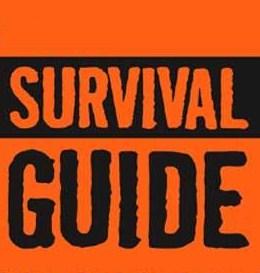How To Survival Guide
- Jul 27, 2012
How To Survival Guide

There are many reasons to create a plan for yourself and your family for survival, such as natural disasters, food shortages and economic decline. We all watch the turmoil as devastation unfolds in places such as Syria and Mexico and are thankful for such a safe place to live here in America but the truth is that anything can happen to anyone at any time. If you lost your job would you be able to continue to support your family? If a hurricane strikes in your town and damages or even destroys your home, where would you go?
Start planning and preparing now for what you can’t predict and you will feel a sense of relief in knowing that you and your family will be taken care of in the face of the unknown.
The beginning is always the hardest part, so here are a few helpful tips to get you on the right track.
- Start with your city’s website, and then to your state’s website to look for emergency routes and shelters available in the event of a disaster. Plan your route and decide what shelter would be closest to you, have a backup plan.
- Don’t forget about your pets! Contact each shelter on your list to find out if they accept pets and if not, contact your local animal shelters for emergency instructions.
- Have a supply of clean drinking water on hand, at least one month per person (and animal) in your family.
- If you require medications for a life threatening condition, make sure you have as much on hand as your insurance will allow. In an emergency situation you may not have access to additional medications.
- Keep a food supply (non-perishable survival food) for at least one month per person (and animal) in your family. Emergency foods are available as freeze dried foods as well as ready to eat canned meats.
- Some other items you will want to have on hand include (but are not limited to): flash lights, batteries, battery operated radio, toiletries, emergency food cook sets, fuel tabs, can opener, first aid kit, clothing and bedding, insect repellent and sunscreen.
Always keep cash on hand and know where all of your important papers are, such as your will, passports, titles and deeds, and any identification documents. It is advisable to keep important documents in waterproof and fireproof containers. Any irreplaceable items, such as photographs, should also be kept in waterproof and fireproof containers.
Regularly back up any electronic documents that are difficult to replace, and keep electronic copies of important documents and photographs either in cloud based storage or on portable storage devices that you can easily carry with you.
Remember, it is always a good idea to have a plan in the event of an emergency. If you are preparing for a natural disaster, a simple power outage, even if you are planning for zombies, having a plan and implementing your plan could save your life and the lives of your family members.
